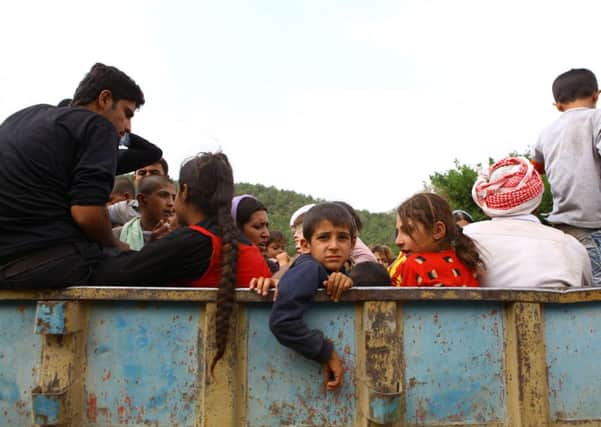Scottish independence: Yes vote risks foreign aid


The UK’s government’s Department for International Development (Dfid) has a base in East Kilbride, where over 600 people are employed, which SNP ministers have suggested could have a continued presence in an independent Scotland for a transitional period before a separate service was launched.
However, Labour MSP Margaret McCulloch warned of an “unacceptable” threat to the jobs and the end of Dfid’s presence in Scotland, which she claimed was worth tens of millions of pounds to the local economy, during a Holyrood debate on the issue earlier this evening.
Advertisement
Hide AdAdvertisement
Hide AdThe Labour MSP added that a Yes vote would lead to the “fragmentation” of aid to the world poorest and the loss of half of the UK’s budget to help poverty stricken nations - a package of support delivered from Difid in East Kilbride that she claimed would equate to a £1 billion cut in humanitarian support.
Ms McCulloch claimed that a new aid department under independence would be much less effective in delivering aid to the world’s poorest due to the loss of the “combined effort” with the Dfid base in London, which would also be weakened and less able to offer support to nations affected by disasters such as famines.
A new aid department for an independent Scotland would also face “set-up and administration costs” which would lead to additional cuts in the international development budget, the Labour politician warned.
Ms McCulloch claimed there was a “positive, progressive, humanitarian reason” to reject independence in the debate, which was held ahead of the final Holyrood session tomorrow before the referendum on 18 September.
She said: “With a month to go until the referendum, the future of civil servants in my region remains unclear and that uncertainty is unacceptable.
“If Scotland were to become independent, Dfid’s budget would be expected to fall by £1 billion and it is far from clear how Scotland and the UK would manage the transition period and minimise the impact on existing aid commitments.
“Not only would a new independent aid agency face set-up and administration costs but so too would a restructured Dfid.
“The costs of fragmentation and duplication would inevitably eat into frontline aid spending.
Advertisement
Hide AdAdvertisement
Hide Ad“The creation of Dfid, the growth in the aid budget, our emergence as a global leader in development - none of it would be possible without the combined efforts of public servants working in Scotland, London and around the world.”
However, Scotland’s minister for international development Humza Yousaf, accused the Labour MSP of “scare mongering and fear baiting” as he pledged that civil service jobs would be protected after a Yes vote.
He said: “We’d work with the UK government to preserve continuity of employment. We have a policy of no compulsory redundancies.”
The minister added that the SNP government had a “very ambitious role” for an independent Scotland in delivering aid to poorer nations.
MS McCulloch went on to claim that Dfid would pull out of East Kilbride within five years of a Yes vote as she warned an independent Scotland would have a smaller aid department.
She said: “Half of UK aid is now delivered through Dfid in East Kilbride. The idea that Dfid would continue to run half of its aid programme out of a foreign country is, as one of its former top civil servants Dave Fish has said, “simply not credible”.
Ms McCulloch said: “Dfid’s East Kilbride office at Abercrombie House supports a total workforce of 600, of which around 550 are UK-based
Home Civil Servants. That’s 43 per cent - almost half – the total number of civil servants working for Dfid in the UK.
Advertisement
Hide AdAdvertisement
Hide Ad“There is no precedent for the UK employing almost half a department of home civil servants in a single foreign country.
“Secondly, the headquarters of an independent Scottish development agency would require fewer staff than the 550 civil servants currently employed at Abercrombie House.”
She went on: “In the event of a Yes vote, Dfid would review its presence in Scotland and the Secretary of State is on record as saying there is “no logical reason” why it would remain.
“The International Development Select Committee expect the East Kilbride office, which contributes £30 million to the local economy, to close within five years of a Yes vote.”
SEE ALSO